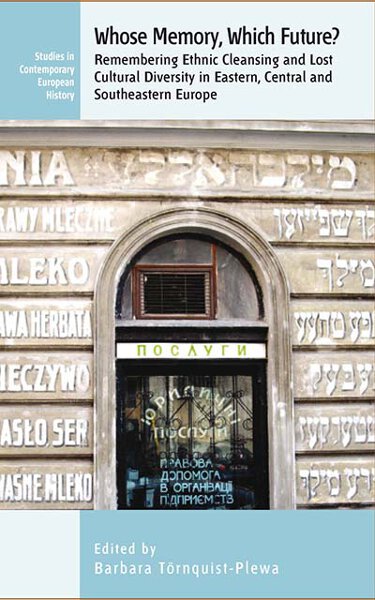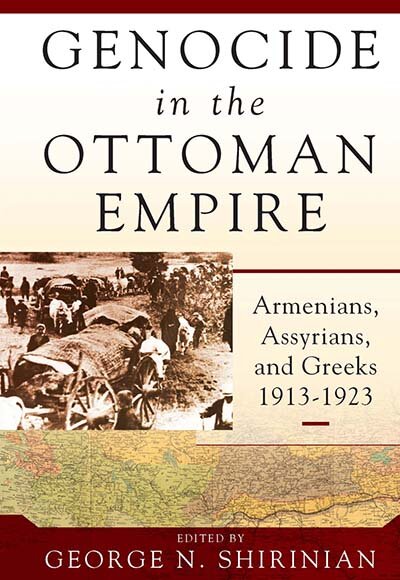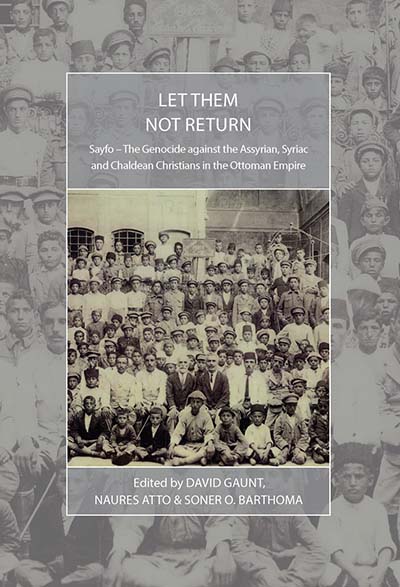
Series
Volume 18
Studies in Contemporary European History
See Related
History JournalsEmail Newsletters
Sign up for our email newsletters to get customized updates on new Berghahn publications.
Whose Memory? Which Future?
Remembering Ethnic Cleansing and Lost Cultural Diversity in Eastern, Central and Southeastern Europe
Edited by Barbara Törnquist-Plewa
242 pages, 20 illus., bibliog., index
ISBN 978-1-78533-122-0 $135.00/£104.00 / Hb / Published (April 2016)
ISBN 978-1-78920-069-0 $34.95/£27.95 / Pb / Published (November 2018)
eISBN 978-1-78533-123-7 eBook
Reviews
“Although comprised of only six case studies reflecting multi- and interdisciplinary approaches, the book presents a coherent and theoretically-informed look at the evolution of memory narratives and representations in what used to be called Eastern Europe…the book should be of interest to anyone concerned about Europe’s multi-ethnic past as perceived, acknowledged or even celebrated at the city level at the former Eastern Europa today. It can be read with profit by scholars and students across various humanistic disciplines.” • The Polish Review
“Exploring a new avenue, the study of cultural trauma, Whose Memory? Which Future? provides an original, timely and singularly stimulating contribution to several subfields of memory studies. Owing to its strong comparative dimension, the book will serve as a sound conceptual, methodological and critical springboard for scholars working on post-conflict memory and cultural trauma but also for students of urban heritage management or post-socialist political cultures… Besides the potential benefits for the cultivation of an integrating European memory discourse, the volume’s contribution to the comparative study of cultural memory in Europe is thus hard to overstate.” • Bohemia
“…the volume makes an important contribution to the literature on memory and is a must-read for anyone interested in the subject.” • Europe-Asia Studies
“The book is the best argument in favor of comparative work in memory studies…[It] can be seen as an invitation, or rather urgent request, to engage more in comparative memory research on the one hand, and to reflect on the possibility of shared European memory politics, on the other. The book is not only highly informative and meticulously researched but also intellectually engaging and provocative.” • Slavic Review
“Featuring an excellent introduction and conclusion, interesting material on cities ranging from Chernivtsi to Zadar, and an innovative theoretical framework, this volume stands out among the current literature on collective memory.” • Zdzislaw Mach, Jagiellonian University
“The approach that this volume takes to the subject of ethnic cleansing is completely new, and the research it presents is significant and extremely valuable. It is one of the first books to address a number of questions that have been overlooked by urban history, memory studies, cultural sociology, and other fields.” • Gelinada Grinchenko, V. N. Karazin Kharkiv National University
Description
Scholars have devoted considerable energy to understanding the history of ethnic cleansing in Europe, reconstructing specific events, state policies, and the lived experiences of victims. Yet much less attention has been given to how these incidents persist in collective memory today. This volume brings together interdisciplinary case studies conducted in Central and Eastern European cities, exploring how present-day inhabitants “remember” past instances of ethnic cleansing, and how they understand the cultural heritage of groups that vanished in their wake. Together these contributions offer insights into more universal questions of collective memory and the formation of national identity.
Barbara Törnquist-Plewa is a professor of Eastern and Central European Studies at Lund University in Sweden. In the years 2005-2017 she was the head of the Centre for European Studies in Lund., 2012-2016 she led the European research network “In Search for Transcultural Memory in Europe” financed by the EU’s COST-programme. She is the editor and author of a number of books and articles in several languages. The latest one is the anthology: The Twentieth Century in European Memory, Amsterdam 2017, co-edited with Tea Sindbaek Andersen.


